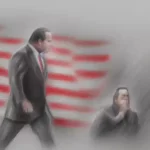You Might Also Want To Explore This:
Climate change has become a pressing issue, with scientists warning of catastrophic consequences if we do not take immediate actions. Recently, John Kerry, the United States’ climate envoy, made a bold comparison in a speech, likening the fight against climate change to the D-Day invasion in World War II. While some responded positively to the comparison, others have criticized it as being overly dramatic and even problematic.
To offer an alternative view, Kerry’s comparison draws attention to the urgent and existential threat posed by climate change. By comparing it to one of the most significant military operations in history, he underscores the need for bold action and global cooperation. The comparison highlights the seriousness of the issue and the fact that it affects all nations and peoples.
However, the comparison has also received backlash. Critics argue that by comparing climate change to war, Kerry is downplaying the very real human and environmental impact of armed conflict. The narrative of “war against climate change” also creates a combative tone, which may not be helpful in creating a collaborative effort. Additionally, the comparison overlooks the geopolitical tensions and economic disparities in countries around the world, making it more difficult to achieve meaningful change.
In my view, while Kerry’s comparison was dramatic, it did serve an important purpose in drawing attention to the urgency of climate change. However, I believe that the comparison to war is problematic and can be counterproductive. Climate change is a complex issue that requires a nuanced approach and global cooperation. Creating a narrative of war distracts from the complexity and seriousness of the issue and can even be harmful in the long run.
Ultimately, I believe that we need to focus on finding a solution to climate change that is collaborative and cooperative, while also recognizing the gravity of the situation. We need to work together to create meaningful changes that prioritize the health of our planet and the well-being of all its inhabitants. Rather than relying on metaphors and narratives, we need to engage in an honest and transparent dialogue about the challenges that we face and the opportunities we have to create a sustainable future.
Here's A Video We Thought You Might Also Like:
Author Profile

- I'm a science writer on a mission to make scientific discoveries accessible to everyone, and that includes exploring the political aspects of scientific research and policy-making.
Latest entries
 Breaking News2023.12.17Dumbfounding Revelation Former Florida State Representative Breaks Silence After Serving Prison Time
Breaking News2023.12.17Dumbfounding Revelation Former Florida State Representative Breaks Silence After Serving Prison Time Breaking News2023.12.15Jolting Revelation FBI’s Secret Surveillance of Catholics Exposed!
Breaking News2023.12.15Jolting Revelation FBI’s Secret Surveillance of Catholics Exposed! Breaking News2023.12.15Is Chris Christie the Bold Challenger the GOP Needs Critics Say No
Breaking News2023.12.15Is Chris Christie the Bold Challenger the GOP Needs Critics Say No Breaking News2023.12.14Senator’s Bold Move to Combat Antisemitism on College Campuses Sends Shockwaves – Will It Work
Breaking News2023.12.14Senator’s Bold Move to Combat Antisemitism on College Campuses Sends Shockwaves – Will It Work






